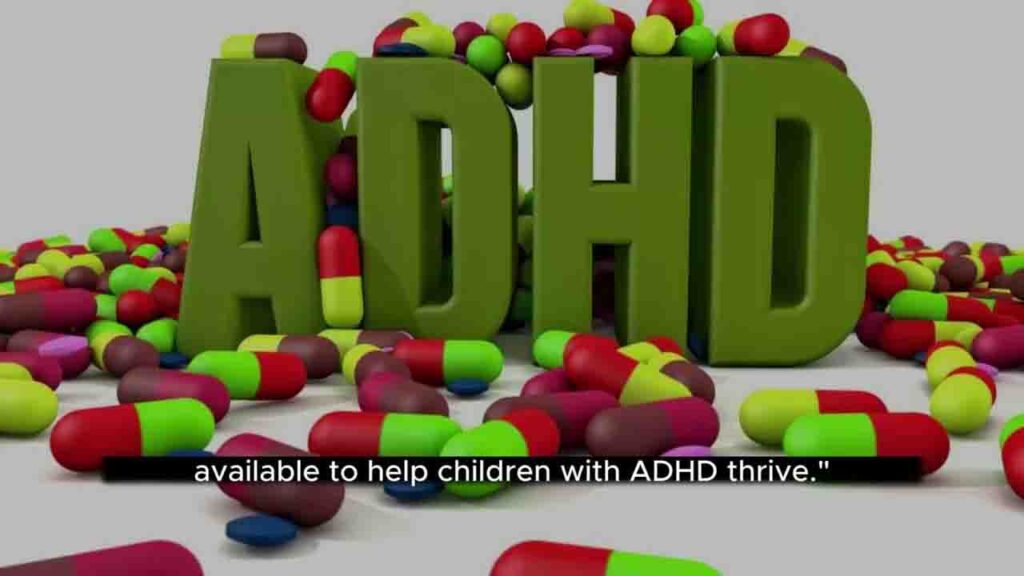
Attention Deficit Hyperactivity Disorder (ADHD) is a neurodevelopmental condition that affects both children and adults. It is characterized by symptoms like inattention, hyperactivity, and impulsivity. Managing ADHD can be challenging, but with the right treatment, individuals can achieve better focus, control, and overall quality of life. One of the most effective treatment methods is medication. In particular, fast-acting ADHD medications have become a go-to solution for many individuals seeking rapid symptom relief.
In this article, we’ll explore what fast-acting ADHD medications are, how they work, and their benefits. Additionally, we will highlight some popular options and their potential impact on individuals struggling with ADHD.
What Are Fast-Acting ADHD Medications?
Fast-acting ADHD medications are specifically designed to provide quick relief from the symptoms of ADHD. Unlike extended-release medications, which gradually release the active ingredient throughout the day, fast-acting medications are absorbed quickly into the bloodstream. As a result, they offer a quicker onset of action, providing rapid relief from symptoms such as inattention and hyperactivity.
There are two primary classes of ADHD medications: stimulants and non-stimulants. Fast-acting medications primarily fall into the stimulant category, although there are non-stimulant options that may also provide fast symptom relief.
How Do Fast-Acting ADHD Medications Work?
Fast-acting ADHD medications work by influencing the levels of certain neurotransmitters in the brain. Neurotransmitters are chemicals that help transmit signals between nerve cells. In the case of ADHD, the most commonly affected neurotransmitters are dopamine and norepinephrine. These chemicals play a crucial role in regulating attention, focus, and impulse control.
Stimulant medications, which are the most commonly prescribed for ADHD, work by increasing the levels of dopamine and norepinephrine in the brain. This helps improve focus and attention, while also reducing hyperactivity and impulsivity. Fast-acting stimulants typically start working within 30 minutes to an hour of ingestion, with effects lasting for about 4 to 6 hours.
Non-stimulant medications, on the other hand, work differently. While they may not have as rapid an onset as stimulants, they can still provide effective symptom relief for individuals who do not respond well to stimulants.
Popular Fast-Acting ADHD Medications
1. Methylphenidate (Ritalin, Concerta)
Methylphenidate is one of the most widely prescribed medications for ADHD. It is a stimulant that works by increasing dopamine and norepinephrine levels in the brain. Ritalin, a common brand of methylphenidate, is a fast-acting medication that typically takes effect within 30 minutes to an hour. Its effects usually last for about 3 to 4 hours, making it suitable for individuals who need short-term symptom relief during specific parts of the day.
Concerta, another form of methylphenidate, is an extended-release version of Ritalin. However, it still works relatively quickly and provides consistent symptom control throughout the day.
2. Amphetamine (Adderall, Vyvanse)
Amphetamine-based medications like Adderall and Vyvanse are also commonly prescribed for ADHD. Adderall, in particular, is known for its fast-acting properties. It contains a mixture of amphetamine salts that work by increasing the release of dopamine and norepinephrine in the brain. The effects of Adderall typically begin within 30 minutes to an hour and last for 4 to 6 hours.
Vyvanse is a prodrug, meaning it needs to be metabolized in the body before becoming active. While it takes a little longer to kick in compared to Adderall, it provides longer-lasting effects and is often prescribed for individuals who need symptom relief throughout the day.
3. Dexmethylphenidate (Focalin)
Dexmethylphenidate is another fast-acting stimulant medication used to treat ADHD. It is a more refined version of methylphenidate, and it works in a similar way by increasing dopamine and norepinephrine levels. Focalin, the brand name for dexmethylphenidate, typically starts working within 30 minutes and has a duration of about 4 hours.
Benefits of Fast-Acting ADHD Medications
1. Quick Relief from Symptoms
The primary benefit of fast-acting ADHD medications is their ability to provide rapid symptom relief. For individuals with ADHD, even a few hours of enhanced focus and reduced impulsivity can make a significant difference in productivity, learning, and day-to-day functioning. These medications can be particularly useful during situations that require heightened focus, such as studying for exams, attending meetings, or engaging in important tasks at work.
2. Flexible Dosing
Another advantage of fast-acting ADHD medications is the flexibility they offer in dosing. Unlike extended-release medications that provide a constant dose throughout the day, fast-acting medications can be taken as needed. This allows individuals to manage their symptoms based on specific activities or times of day when they need the most support.
3. Minimized Side Effects
Since fast-acting medications are taken in smaller doses more frequently, they may cause fewer side effects compared to extended-release versions. Some individuals may experience side effects like increased heart rate, anxiety, or insomnia with stimulant medications. However, the shorter duration of action with fast-acting medications can reduce the likelihood of these side effects lingering for too long.
Potential Side Effects of Fast-Acting ADHD Medications
While fast-acting ADHD medications are highly effective, they may come with side effects. Common side effects of stimulant medications include:
- Increased heart rate
- Insomnia or difficulty sleeping
- Anxiety or nervousness
- Appetite loss
- Dry mouth
These side effects are typically temporary and subside as the medication wears off. However, it’s important to work closely with a healthcare provider to monitor and adjust the dosage as needed.
How to Choose the Right Medication
Choosing the right fast-acting ADHD medication depends on several factors, including:
- Personal medical history: Some individuals may have underlying health conditions that affect how they respond to certain medications.
- Severity of symptoms: If ADHD symptoms are particularly severe, a stronger medication may be needed.
- Side effects: If side effects are a concern, non-stimulant medications or a different stimulant may be recommended.
It’s important to consult a healthcare provider to determine the best medication for individual needs and circumstances.
Final Thoughts
Fast-acting ADHD medications can significantly improve the quality of life for individuals struggling with the symptoms of ADHD. These medications offer quick relief, flexibility, and reduced side effects, making them an ideal choice for many. However, it’s important to work with a healthcare professional to find the best treatment plan for your specific needs.
If you’re looking for more information on how ADHD can be managed effectively with medication, visit SafeHealth247 for helpful resources and treatment options.






